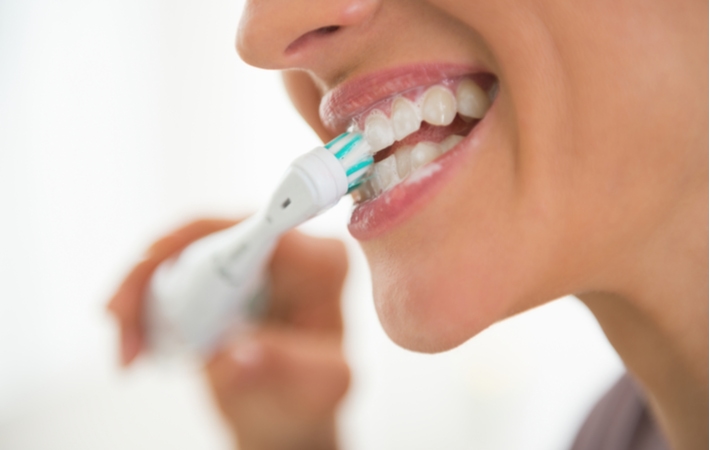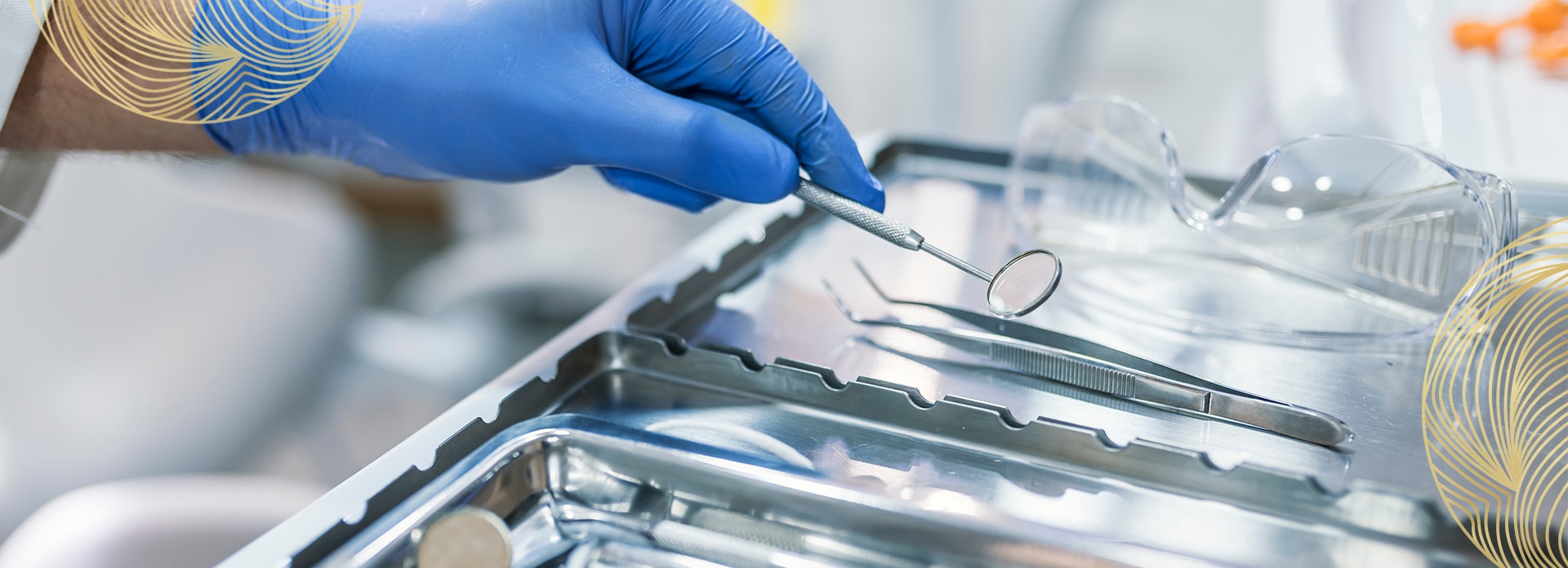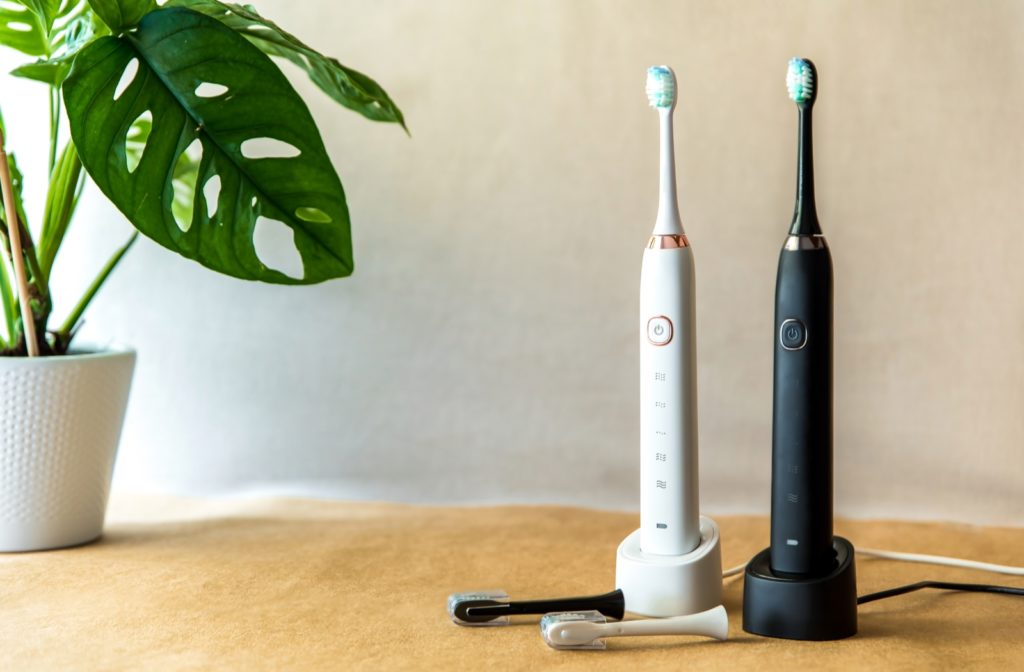Good oral hygiene can help to improve your overall health. We recommend brushing and flossing at least twice each day. It’s the most important thing you can do for your dental health—aside from getting regular dental checkups of course.
For effective prevention of both gum disease and cavities, you should brush for between 2 and 3 minutes each time. The type of toothbrush you choose is important too. Many people wonder if electric toothbrushes are worth the price, or if they are overrated.
Embracing technology almost always helps improve the quality of dental care—electric toothbrushes are more than just a gimmick. Read on to learn more.
Why Brush Your Teeth?
Brushing your teeth is necessary to remove the clear and sticky substance, called plaque, that forms on your teeth daily. If plaque is not removed, it can harden into a substance called tartar and cause gum disease.
Preventing cavities is another important reason for brushing your teeth on a regular basis. The foods you eat contain sugars, which mix with the bacteria in your mouth to form an acid that eats away at your tooth enamel, eventually leading to a hole in the surface of your tooth.
Effective & Efficient
Electric toothbrushes remove plaque more efficiently than regular toothbrushes, helping to keep you free of gum disease.
For people with reduced or limited mobility, electric toothbrushes might be easier to use. People with arthritis or carpal tunnel syndrome might find them to be very helpful. The brush can do much of the work for you. All that is necessary on the part of the brusher is to simply guide the device along the teeth, rather than sweeping it back and forth across them.
Many electric toothbrushes have added features, like a handy, built-in timer that can assist with making sure you meet your 2 to 3 minutes of recommended brushing time.
Expand Your Reach
The back teeth are much more challenging to clean than the front teeth. Molars can be rotated slightly in the mouth and harder to reach, therefore more vulnerable to the accumulation of plaque.
Electric toothbrushes can help you to clean those hard-to-reach areas. They can also help you clean around orthodontic appliances like retainers and braces.

Are Electric Toothbrushes Safe?
Electric toothbrushes are safe for gums and teeth. When used properly, they will not damage your enamel or your gum tissue. As with any brushing and flossing, pushing too hard or being too forceful can cause damage, so take the same care and attention with an electric toothbrush as you would with the manual type.
Which Electric Toothbrush Is Right For You?
Like most products, there are many different brands and styles of electric toothbrushes on the market, all with their own features and benefits.
Oral B and Phillips Sonicare are two of the most popular brands on the market today. How do you choose between them? Let’s take a closer look at each one.
Oral B
These electric toothbrushes have a small, round brush head that works well for hard-to-reach areas like those back molars. The head of the toothbrush oscillates in order to help reduce plaque and gingivitis.
Oral B electric toothbrushes come with a two-minute, built-in timer to ensure you are taking the time needed to remove as much plaque as possible. Some of the newer models even allow you to increase the length of the timer for a deep clean or decrease the speed for a more gentle clean for those with sensitivity.
The toothbrushes are also available with pressure sensors to be sure you are not brushing too hard and can be set to massage mode in order to simply massage and stimulate the gums.
Sonicare
Sonicare electric toothbrushes come with heads that are similar in size and shape to a regular toothbrush. They cover more surface area than a round-headed brush.
This brand has sonic technology that pulses water between the teeth while vibrational brush strokes break up and remove plaque. They come with a two-minute timer to ensure you get an adequate brushing. Some models also have a pressure sensor to prevent you from pushing too hard on the gums.
How Do I Choose?
Both Sonicare and Oral B electric toothbrushes do a good job of reducing plaque and do so better than a manual toothbrush. You should choose the brand with the features that work best for you.
If you prefer to brush for a longer length of time, purchase an electric toothbrush with a timer that can be customized. If you have sensitivity in the teeth or gums, select a model with a pressure sensor.
Of course, consult with your dentist for assistance in selecting the perfect electric toothbrush.




